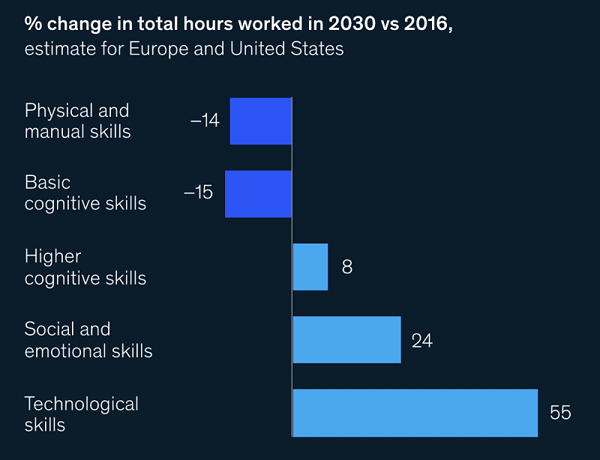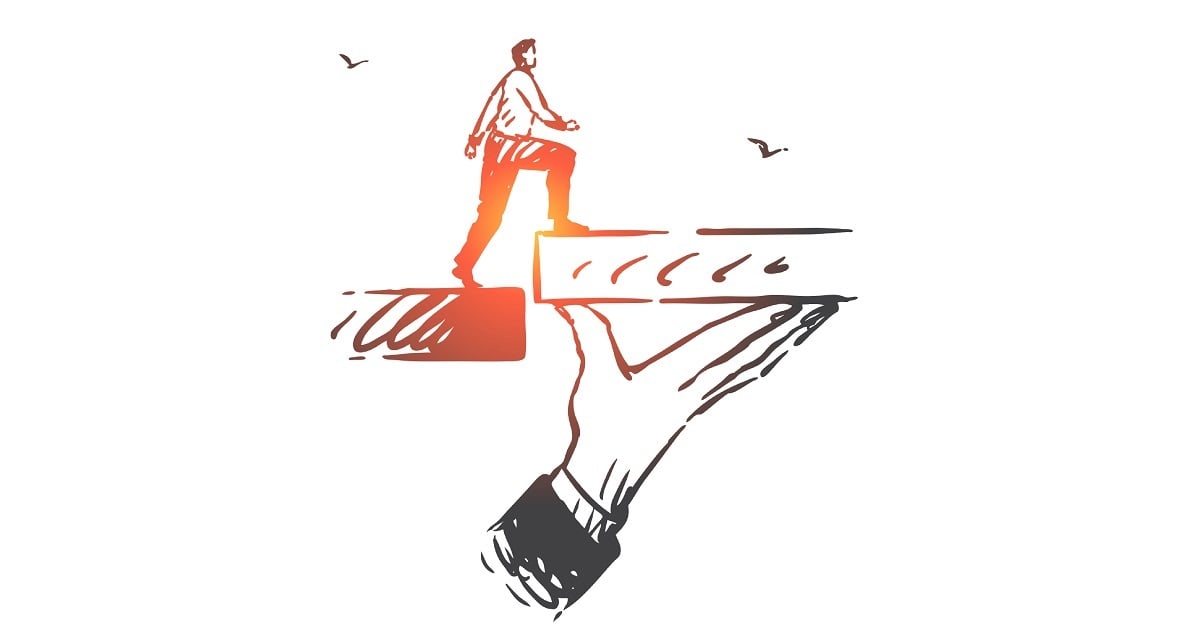The automation and digitalisation of tasks has made an employee’s soft skills – or interpersonal skills – more valuable than ever. Because no machine will ever be able to imitate empathy, creativity, or leadership.
But that's not the only reason. An employee’s individual personality traits are as important to businesses as their knowledge and experience. Every company wants their employees to do their jobs well. However, they also want them to bring a positive attitude and help build a constructive working environment.
In this article, we’ll go into soft skills in more detail, talking about why they are important, which ones are in-demand right now and what we can do to improve them. If you are interested in employee training and development read our guide for HR managers.
What are soft skills?
Soft skills are an employee’s interpersonal capabilities: the emotional and social capacity they possess that enables them to adapt to the company culture and interact with their team. They can be thought of as innate skills, developed throughout a person’s life.
Some examples of soft skills we could mention include emotional intelligence, empathy, leadership, time management, among many others.
The importance of soft skills
As intelligent machines take over the most physical, repetitive, and basic tasks, social and emotional skills can only grow in importance. According to a study by the Pew Research Center, the most valued professional skills in the near future will be those that IT programs cannot replicate. That is to say, soft skills.
A McKinsey report goes even further and analyses the percentage change foreseen for 2030 versus 2016 in the time dedicated to different tasks. As this graph shows, cognitive, emotional, and technological skills are expected to take prominence.

So, one of the main reasons why soft skills are so important is that they differentiate employees from machines.
From a business point of view, however, that does not tell the whole story. There are many more reasons why companies see soft skills as valuable assets:
- They help identify employees who will not only do their job well, but will also go the extra mile and have a positive influence on the work environment.
- They allow a company to hire a candidate based on their potential, not just their abilities. This is particularly useful for junior roles.
- The organisation can gauge whether the candidate will be a good fit with the company philosophy and culture.
- Considering soft skills in the recruitment process gives the HR team a complete picture of the candidate when making hiring decisions.

The difference between soft skills and hard skills
Unlike soft skills, hard skills refer to the practical knowledge and abilities that an employee gains via training. They are also quantifiable and easier to learn than soft skills.
Let’s take an example of a carpenter. Relevant hard skills would be knowing how to use an electric saw or how to build a wardrobe from wood. An important soft skill, on the other hand, would be the ability to communicate effectively with their colleagues or customers.
Both types of skills are crucial to success in all work environments, meaning they should be cultivated and worked on equally.
The most in-demand soft skills
We’ve already mentioned some soft skills in this article, but here we’ve put together a list of the ones companies value the most.
1. Communication
Communication skills are important in almost all jobs. We interact with colleagues, customers, and suppliers on a daily basis via different means: in person, by telephone, in writing. To be able to speak or express ourselves clearly, precisely, and amiably is essential in a work context.
Coupled with this is the ability to listen. Companies want workers who can not only communicate their own ideas, but who also know how to listen to others attentively and sensitively.
2. Critical thinking
It doesn’t matter what job an employee does, all companies need workers who can analyse a situation and make a decision. Understanding problems, thinking critically, and formulating solutions are all vital skills. And we might also need a dash of creativity, flexibility, and curiosity to achieve this.
3. A positive attitude
Finding people who bring a positive attitude to the work environment is always a bonus. Human Resources should look for employees who are friendly, keen to work, and who, in general, people enjoy spending time with. Maintaining a positive attitude is especially important in high-pressure or stressful work settings.
4. Teamwork
Teamwork is another prized skill. Workers should be able to coordinate and collaborate with their colleagues effectively. And, of course, know how to bridge the gap when differences of opinions arise.
Some abilities related to teamworking include negotiation, recognising and appreciating diversity, as well as accepting recommendations and criticism from others.

5 steps to improving soft skills
Although hard skills are much easier to learn, soft skills can be moulded, transformed, and enhanced (which is where the name ‘soft’ comes from). Here are some ideas of how you can do this:
1. Adopt a positive attitude towards change
Any development process should be founded on a desire to change or improve. If this does not exist among a company’s employees, negativity and friction are almost inevitable.

2. Educate
Employees should understand what soft skills are and understand the direct impact they have on their development. As well as internal discussions or individual meetings to explain this, you can also encourage workers to read books on personal development.
3. Evaluate your staff’s soft skills
Evaluating the soft skills of your staff aims to identify existing abilities, strong points, and areas for improvement. This review also allows the employee to take stock of themselves and their professional skills.
Here, technology is indispensable. The best and most objective way of reviewing an employee’s abilities and skills (hard and soft) is with HR software. These programs can design forms, set individual goals, and gather feedback from colleagues. By bringing this information together, we can then paint a reliable picture of an employee’s capabilities.
4. Set goals
All training plans must have an eye on the future, so the employee and company should pinpoint between three and five goals to work towards. These targets should be SMART, so staff know where to focus their efforts and keep their development on track.
5. Encourage employees to practise soft skills
Soft skills need to be put into practice over a significant period before we see results. Once we’ve allowed enough time, we will need to review the objectives and measure the results achieved so far.





